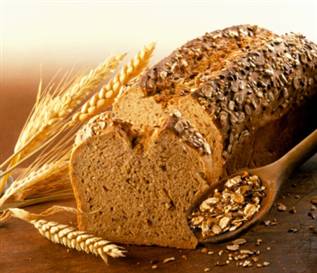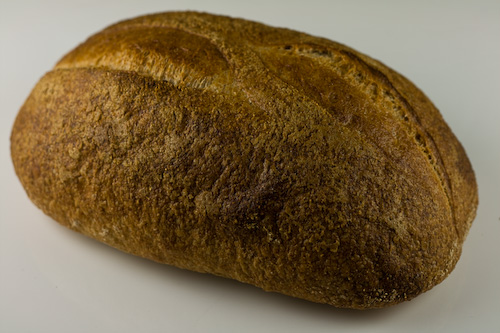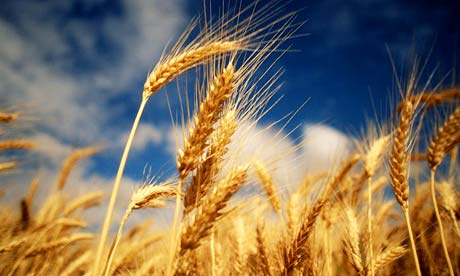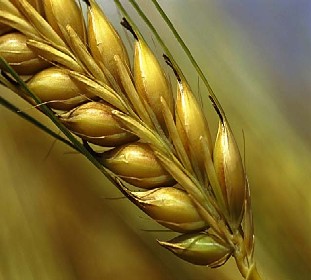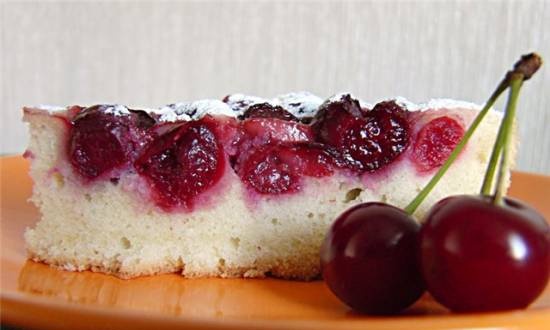Bread - noun |
|
The attitude of the modern food industry towards us as consumers can be described in one phrase: faster, easier, more satisfying. What to do, the time is now. The speed of life has increased many times, everything must be in time. I came home from work, took out what to eat from the refrigerator, warmed it up, pecked without disassembling it, watched TV, and sleep. The food industry specialists are well aware of these simple requests of ours. And helpfully adapt to them. The best scientists, the best laboratories in the world are working on this. Need it fast? Here are 3-minute noodles. Do you need tasty? Here is a microwave royal lunch with a variety of flavors and amplifiers. Do you need nice and satisfying? No problem! Here's a warm French bread with a perfect crust, dazzling white flesh and just the right amount of calories if you don't overeat. Plus, slicing ham - and you don't need a knife ... What about health? And its connection with food?
The food industry has no answer to these questions. Because they were not placed in front of her. Health is a medical issue with an industry behind it. Therefore, we ourselves will have to think about healthy eating, there is no one else. And we should start with the most important thing, with the basis of our food - bread.
It so happened that our distant ancestor - an ancient man - chose cereals as his fundamental food product, his "main bread". What made him make such a choice? Probably, he was prompted to do this by the high yield of cereals and the simplicity of grain storage (grain of cereals remains viable for many decades), which made it possible to make stocks. It is quite possible that the nutritional and biological value of cereals turned out to be higher than that of other gifts of nature, therefore, eating grain, our ancient ancestor felt better and was less sick. But regardless of any reason, a person chose the grain of cereals as his "main bread" in different parts of the world and in different climatic conditions: in the East - rice and millet, in America - maize and amaranth, in Eurasia - wheat, rye, barley, oats ... That is, the grain of cereals has become the "main bread" everywhere.
Approximately from this moment a person falls into complete dependence on grain of cereals, and his organism goes through the whole further path of evolutionary development, already relying on the chemical and biological composition of grain - its "main bread". Due to this almost drug addiction, the attitude towards cereals among all peoples is very reverent: often cereals were even deified, they were put, as it were, above themselves. Our country is no exception here; bread in Russia, including wheat bread, always called the priest, and the main cereal - rye - was called mother. There are many folk proverbs and sayings confirming this almost filial love: "Mother rye feeds everyone completely", "Bread and water are heroic food", "God is on the wall, bread is on the table", "Death without bread, laughter without salt" ...
And surprisingly, the cereal, a seemingly soulless creature, responded to this love! After all, it has long been known that if there is enough grain (grain reserves), then no troubles are terrible for the people. Disease always came when grain supplies were depleted. Crop crop failures (drought, flood, etc.) have always been the forerunners of disease and mass pestilence. And in fruitful years, when bread was in abundance, nothing of the kind was observed. Bread protected us from all sorts of ailments. That is why they called him “father” - protector and breadwinner.
But we will not further develop the mystical component of the relationship between man and bread. Let's look at a much more important part - the physiological one.
Bread is the head of everything
We, civilized descendants in quotation marks, seem to always remember this good and very wise testament of our ancestors. But we mean something completely different.
What?
First of all, bread should be understood as a cereal, not a bakery product, i.e. grain in unrefined (unrefined) form. This is the meaning that was historically invested in the word "bread" in Russia. Modern bread, for example, the popular sliced loaf, is something different. It is a gentle, but from a biological point of view, completely empty product. This is exactly what our great-grandfathers warned us about, saying that "a roll of bread is not a substitute." The young Count Sheremetyev spoke about this to his friend the poet Pushkin, telling him: “It’s bad, brother, to live in Paris: there’s nothing to eat, you won’t ask for black bread!”
Then in the Russian Empire, bread was made everywhere “black” - from unrefined coarse flour. Only baked goods were made from refined white flour: rolls, rolls, etc. It is reliably known that even at the beginning of the 20th century, more than 90% of the grain of cereals in the Russian Empire was eaten in a whole, unrefined form. Accordingly, the proportion of refined white flour was less than 10%. And today, almost 100% of the grain of cereals is consumed in food in a refined form - in the form of pure starch isolated from this grain.
So the western fashion for white bread and various other "French loaves" came to us much later than an ignorant layman might suppose. And along with it - all the Western sores. In other words, under the influence of many technological, cultural and other civilizational factors, we ourselves have abandoned centuries-old habits and traditions in food. And they did it almost instantly, regardless of the demands of our body.
How did it happen?
On the one hand, the development of milling production has created an urgent need for a significant increase in the shelf life of milled grain - flour. Whole-ground unrefined grain (unrefined flour) is stored for a short time and requires compliance with fairly stringent storage conditions. The main enemy of long-term storage is the grain germ - a concentrate of vegetable oils and other biologically active substances. Accordingly, you need to get rid of it first. On the other hand, bread made from white flour, free from coarse plant fibers and other "ballast substances", tastes more delicate, and the varietal flour itself is more convenient and predictable in use. Such flour, from the technological point of view, is more suitable for mass production than whole grain flour.
The scientific substantiation of the general refining of cereals was provided by nutritionists, who at that time did not really understand what function in the human body is performed, for example, by plant fibers that are not digested and indigestible by the human digestive system. Therefore, all parts of the grain, with the exception of the endosperm, were considered by nutritionists to have no nutritional value. Calling them "ballast substances", scientists allowed them to be removed from grain during the production of flour and cereals.
Over time, grain cleaning technologies have been improved so much that it became possible to extract absolutely pure starch from the grain, and white flour gradually replaced all other types of flour. By the way, to make the flour perfectly white, they learned to bleach it. So a person, in fact, excluded from his own diet his fundamental food product - cereals.
As the cereals disappeared from the diet, the person began to get sick more often. Moreover, in parallel with the widespread replacement of high-grade flour for high-grade flour, which is pure carbohydrates easily digestible by the body (all biologically valuable components of grain are removed during the refining process), new previously unknown or extremely rare diseases began to appear.This is how the civilized world faced the "epidemics of the 21st century": cancer, diabetes, cardiovascular diseases, osteoporosis, allergies, etc.
After numerous scientific studies and experiments carried out in all developed countries from the early 70s to the mid 80s of the last century, it was found that absolutely all parts and components of grain play a vital role in the human body. And whole grain bread made from high-grade (unrefined) flour, like other whole grain products, has been declared the most effective means of preventing most modern diseases, including cancer, diabetes, strokes, etc. In particular, removing the grain germ from wheat flour, we have deprived our body "The main antioxidant" - vitamin E, which people have historically obtained from the germ of wheat. The National Nutrition Committees of most developed countries recommend including full bread and whole grains in the diet of everyone, without exception. This is especially strongly recommended for children and adolescents during the growth period, for pregnant women and nursing mothers, as well as for elderly people, when the immune system, due to physiological changes, is weakened.
It turns out that even such seemingly useless "ballast substances" as plant fibers perform a vital function in the human body - cleansing from poisons and toxins. But we ourselves, willingly or unwillingly, refused to use them.
And what to do now, you ask? Not globally, not on a national scale, but on a simple everyday level that concerns you personally?
Everything is very simple. Eat unrefined (whole grain) cereals. Or at least remember sometimes that they exist. Someday this knowledge will definitely be useful to you.
Seleverstov Valery - technologist of flour-grinding production of the company "Diamart" |
| Ode to the bread maker! | Bread makers: making diet bread |
|---|
New recipes
